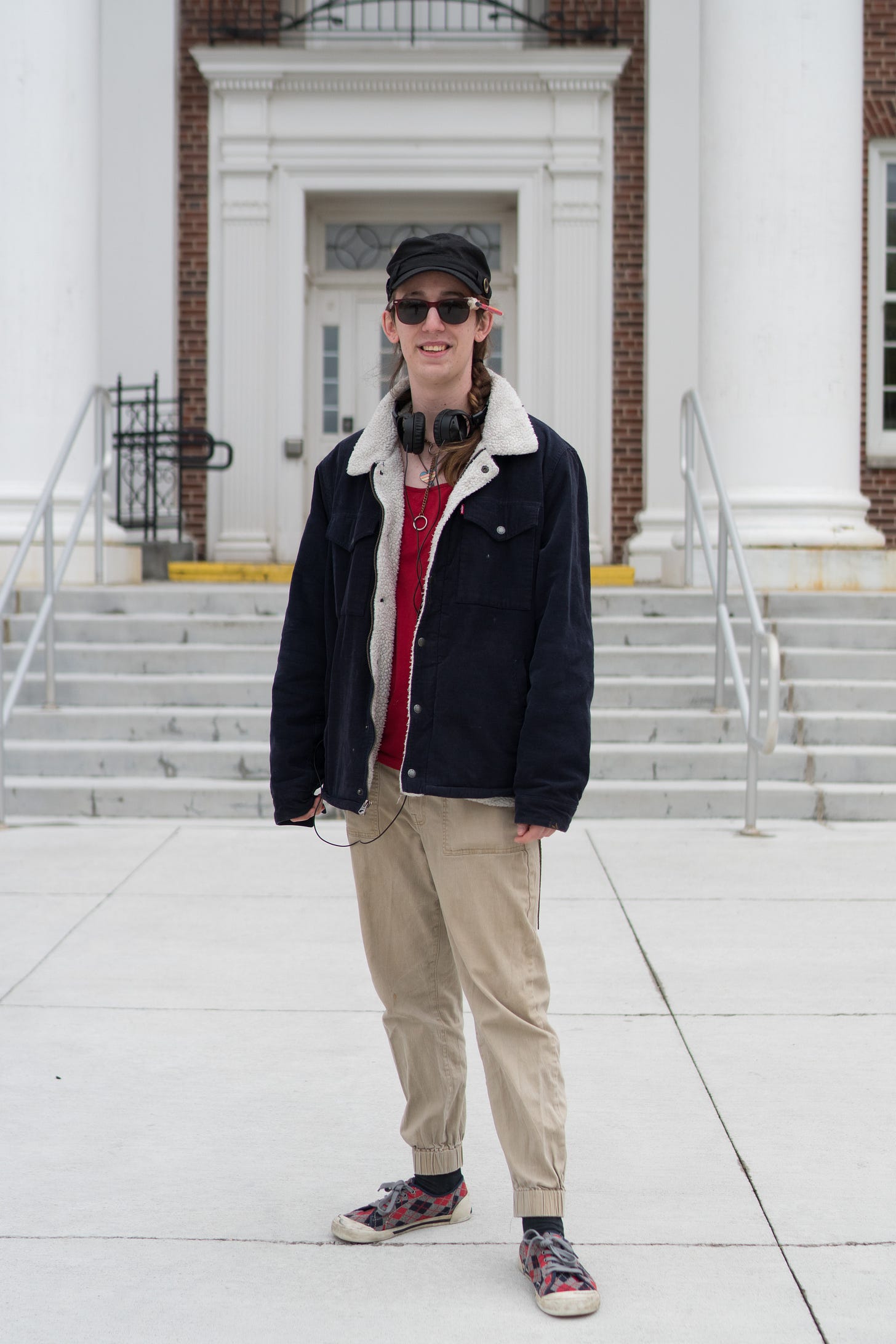Nebraska students rise up against anti-trans bigotry
Also: Reader thread on Twitter's demise — and what comes next.
Note from Aaron: The bottom of this edition features a subscriber thread about Twitter’s dying days and how readers are adapting. To take part in that discussion, support this work, and get full PN access, please become a paid subscriber.
By Noah Berlatsky
“I can’t just sit aside and let them steamroll the next generation,” Caenis Bryan told me. “It’s important that these kids have access to care.”
Bryan is a 27-year-old Air Force Veteran enrolled in a multidisciplinary program at the University of Nebraska at Omaha. She’s also one of the organizers of a demonstration scheduled for Monday at the university to protest the raft of anti-trans legislation that’s been put forward in the Nebraska legislature.
People don’t generally think of Nebraska as a progressive bastion, and for good reason. The state is one of the most reliably Republican places in the country. It’s voted for the Democratic presidential candidate only once since 1936 (though it splits its electoral votes, and generally gives one out of five to Dems). In 2020, Trump won by 20 points. That was 3 points higher than his margin in Mississippi.
And yet, Nebraska has emerged as a hotbed of resistance to anti-trans bigotry.
Red state resistance
Throughout this session, the Nebraska legislature has been attempting to pass a ban on gender-affirming care for young trans people. Democrats, however, have launched a remarkably effective filibuster, blocking every bill before the legislature in protest. Led by state senators Michaela Cavanaugh and Megan Hunt, the opposition has ground the legislature to a halt; virtually nothing has passed. Hunt in particular has gained a national following for her righteous anger and open contempt for her opponents.
“No one in the world holds a grudge like me, and no one in the world cares less about being petty than me. I don't care. I don't like you,” she told her Senate Republican colleagues during a debate last month.
Working with great contributors like Noah requires resources. To support this work, please click the button below and sign up to get our coverage of politics and media directly in your inbox three times a week.
Republicans recently managed to override the filibuster by one vote, and are closer to passing the ban. But time is running out, and it’s still not clear they will manage to pass the bill before the session ends. Democrats remain impassioned and unyielding.
“You care more about legislating hate than anything else,” Cavanaugh told her Republican colleagues during another recent debate.
Cavanaugh and Hunt’s determination has been remarkable. But they’re not alone. Nebraskans elected them both, after all, and the senators’ stance reflects the conviction of many in the state. Jenny Heineman, a professor of sociology at UNO who has attended many protests over the years at the state Capitol, said she’s been taken aback by the amount of opposition to anti-trans legislation.
“In the 90s,” she told me, “we were going to the Capitol [to advocate for LGBT rights], and there were like five of us. Now, there’s hundreds. People have been denied the ability to testify because there are so many people at the hearings.”
Heineman teaches Social Justice and Social Change, a course in which she focuses on the tactics and strategies of social movements from the 1800s to the present. A recent class discussion on Occupy Wall Street inspired around ten of her students, including Bryan, to organize next Monday’s protest to the anti-trans bills.
Bryan grew up in East and Central Texas and joined the Air Force in 2015 — she maintained flight equipment like parachutes, life preservers, and night vision goggles. After her discharge in 2018 she moved to Utah and then was homeless briefly. Since her knees were damaged in the military, the VA helps pay for her costs at UNO, where she’s been studying everything from biomechanics to theater production.
Bryan has been involved in organizing before; when she first got to Omaha, after a stay in a homeless shelter, she started a small program called Rainbow Relocation Foundation to help provide homeless people with medicine, education, and employment resources. Now, she’s helping fellow protest organizers connect with the LGBT community. One of the scheduled speakers for Monday’s protest in Omaha is Eli Rigatuso, a Two Spirit Menominee Nation activist and podcaster.
Other speakers include Alex Dworak, a gender care specialist; Andrew Aleman of the queer prison abolitionist organization Black And Pink; and Hunt, one of the state senators who has been leading the filibuster at the Capitol. The students plan to walk out of class around 11:15am and then march over to nearby Memorial Park to listen to speakers and demonstrate. They hope to have between 100 and 200 people, according to Macy Cummins, a psychology student and lifetime Omaha resident who’s also one of the organizers.
That’s not a huge crowd, obviously, and it’s easy to dismiss small demonstrations in red states as ineffectual or pointless. UNO itself has been careful not to endorse the protesters’ goals. When I asked the press office if they opposed the anti-trans legislation, UNO said, “The University of Nebraska System has not taken a position.” In response to a question about whether they hoped to foster political engagement at the school, UNO replied, “We are committed to the free exchange of ideas as part of our mission to prepare students to be engaged citizens.”
Her university’s neutrality notwithstanding, Cummins said her goals for the protest are simple: “If we could change some minds and let lawmakers know that there are people in Omaha and in Nebraska who don’t want this legislation, that would be awesome.”
It’s also valuable, she said, to offer support when other people or institutions aren’t.
“I think the main goal,” Cummins told me, “is to show students at UNO and young people in Omaha that there’s a community here that is willing to protect them, and that they have a safe space in this community, whether or not legislation reflects that.”
“I think our main interest is to just spread awareness about this bill,” Bryan told me. “I’ve talked to some of the cis people in my life, and they’re like, ‘Wait, what’s going on [with banning trans health care]?’ They’re completely oblivious.”
Protest as community building
For people who follow politics, it’s hard to believe that the filibuster in Nebraska, which is national news, isn’t well known in Omaha. But many people don’t pay attention to politics. Rallies and protests can sometimes reach those who have tuned out other news sources.
Heineman, the UNO professor, told me that protests such as these defy conventional wisdom about young people today.
The rhetoric around young people — people say the most horrible things about this generation,” Heineman said. “That they’re narcissistic. But I think this really shows that young people are ready to fight for their own rights and for the rights of others. And I feel that that’s an accomplishment in and of itself. Even just for the students to feel and know that there is community here in Omaha.”
Mainstream media generally ignores student protest except when it can be framed as an assault on free speech, or if it threatens the orderly process of education and credentialing. But the truth is that young people getting involved in democracy is the best hope for democracy. That’s true for trans rights and for everyone’s rights. And it’s true even in — or especially in — red states like Nebraska.






